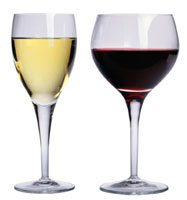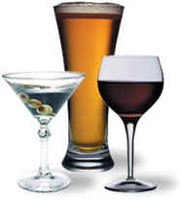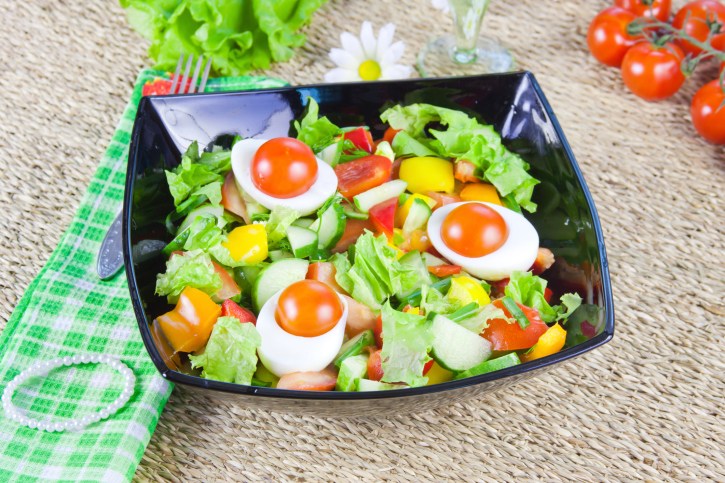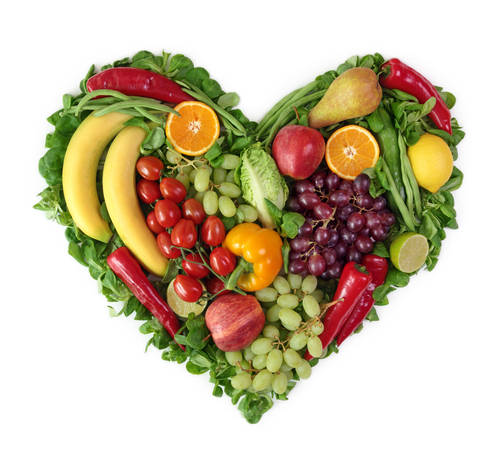How Alcohol Affects Weight Loss – Calories and Carbs in Drinks
In the never-never land of diet hype, something new is on the scene. Alcoholic beverages labeled for carbohydrate and calorie content and many of them are boasting of low carb beer, low carb wine and “no carbs” liquor. You may not have noticed the labels yet, but they are either in the marketplace already or coming very soon. The labeling of beer, wine and the hard stuff for calorie content is not a bad idea and it is useful to know the caloric content of anything you’re about to consume. But what about carbs?
Wine producers, on another tack, have lobbied for permission to use a “heart-healthy” label, but the agency with jurisdiction over such matters (the Alcohol and Tobacco Tax and Trade Bureau, part of the Treasury Department, which has long regulated the “sinful” commodities, as well as firearms) has been cool to the idea, and has required so many disclaimers that a bottle of wine would need to come with a booklet tied around its neck.
However, though the wine industry can’t simply label wine as having heart benefits, the low-carb and no-carb claims on alcoholic beverages are legal—so long as the labels don’t actually say that they help you lose weight. But, in fact, the terms are now irrevocably linked in most people’s minds (especially young people’s minds) to “weight loss,” “Atkins diet,” or even “better for you.” “Cut carbs, lose weight,” many people now think. “Low-carb” has somehow come to mean “healthy.” Nothing could be further from the truth when it comes to alcohol—and no subject could be more confused and confusing than the effect of alcoholic beverages on weight.
Top 5 Low Calorie Cocktails To Drink On New Years Eve
#1. LIGHT BEER (12 ounce bottle):
- Calories: 110
- Carbs: 4.5 grams
- Fat: 0 grams
- Protein: 0 grams
#2. CHAMPAGNE (4.2 ounce glass):
 Calories: 95
Calories: 95- Carbs: 1.6 grams
- Fat: 0 grams
- Protein: 0.3 grams
#3. RED or WHITE WINE (4.2 ounce glass):
- Calories: 80
- Carbs: 1.5 gram
- Fat: 0 grams
- Protein: 0 grams
#4. JACK DANIELS (1.5 ounce shot):
- Calories: 96
- Carbs: 0 grams
- Fat: 0 grams
- Protein: 0 grams
#5. VODKA (1.5 ounce shot):
- Calories: 96
- Carbs: 0 grams
- Fat: 0 grams
- Protein: 0 grams
How Many Calories Does Alcohol Contain?
Pure alcohol contains about 7 calories per gram, which makes it nearly twice as fattening as carbohydrates or protein (both contain about 4 calories per gram) and only just under the caloric value for fat (9 calories per gram). This means that if you want to lose weight and reduce excess body fat, alcohol is not a good choice.
Examples of Carb Content in Alcoholic Drinks
Knowables and Variables
Scientists have not been able to tie alcohol consumption consistently to weight gain. Some studies have found that drinking beer or spirits, for instance, increases waist-to-hip ratio, while some have found no relationship at all. One study showed that among female twins, body fat actually decreases with increasing alcohol consumption. Other researchers have also found that heavy drinking reduces body fat, but still others point to evidence that it raises the risk of becoming overweight or obese. There may never be a simple answer, since there are so many variables. For example:
- Genes affect how the body processes alcohol.
- What you eat is important—if you consume a lot of cheese or other high-calorie snacks while drinking, you’ll most likely gain weight.
- People who drink a lot may gain weight whether they drink beer, wine, or spirits.
- But if you drink a lot and the alcohol replaces food and other beverages, you may lose weight, as some alcoholics do.
- People in studies are prone to under-report how much they drink, rendering many findings unreliable.
The Mystery of Alcohol and Carbs
Still, sensibly enough, the first thing nearly all weight-loss plans require is that you stop drinking. (Not the notorious “Drinking Man’s Diet” of yore, a prehistoric ancestor of Atkins, which consisted of martinis, steak, bacon, and eggs.) This is because alcoholic beverages give you calories with no other nutrition, and they also may loosen your resolve to lose weight and make you eat without thinking. Beer goes with peanuts, wine with cheese. Also, alcohol itself is high in calories—7 calories per gram, almost as much as fat (9 calories per gram) and more than carbs or protein (about 4 per gram). Here are some things you should know about alcohol and nutrition—facts that run counter to what many people believe:
Alcoholic beverages all contain calories, and most of the calories come from the alcohol. (We are speaking about straight spirits, wine, or beer—not mixed drinks made with added ingredients, which can bring calories to, well, staggering levels.)
- Alcohol is not a carbohydrate.
 Your body processes alcohol first, before fat, protein, or carbs. Thus drinking slows down the burning of fat. This could account for the weight gain seen in some studies.
Your body processes alcohol first, before fat, protein, or carbs. Thus drinking slows down the burning of fat. This could account for the weight gain seen in some studies.- Hard liquor is distilled and thus contains no carbohydrates. The current “Zero Carb” campaign for vodka and whiskey is baloney and may encourage mindless consumption. It’s like bragging that a candy bar is “cholesterol-free.”
- When grapes are made into wine, most of the fruit sugars (carbs) convert to alcohol, but a few carbs remain. A 5-ounce glass of wine typically contains 110 calories, 5 grams of carbohydrates, and about 13 grams of alcohol (which accounts for 91 of the calories). A 5-ounce glass of wine supplies roughly the same amount of alcohol and number of calories as a 12-ounce light beer or 1.5 ounces of 80-proof spirits.
- Beer, too, contains carbohydrates. The new low-carb beers are not new at all, though this type of beer does indeed have fewer carbs. Low-carb beers are simply the old light beers with a new label and ad campaign. The old Miller Lite has 96 calories and 3.2 grams of carbs in 12 ounces. The “low-carb” Michelob Ultra has 96 calories and 2.6 grams of carbs. Coors Lite has 102 calories and 5 grams of carbs. The differences are tiny—hardly worth mentioning. In contrast, a regular beer has 13 grams of carbs and 150 calories.
What It All Boils Down To
In spite of the strong implication that “low-carb” somehow means low-calorie, and that low-carb foods in general can help you lose weight—or, indeed, that they are “health foods”—there’s no evidence this is so, and particularly not when it comes to beer, wine, and liquor. Alcoholic beverages have calories because alcohol has a lot of calories—not because of carbs. The implication that low-carb beers and wine or carb-free spirits are a boon on a weight-loss program is simply deceptive advertising.
What The Experts Say
Let’s take a quick look at what a few of the low-carb experts have to say on the subject of alcohol and low carb diets:
Robert C. Atkins –– the Granddaddy of them all:
“Here’s the problem with all alcoholic beverages, and the reason I recommend refraining from alcohol consumption on the diet. Alcohol, whenever taken in, is the first fuel to burn. While that’s going on, your body will not burn fat. This does not stop the weight loss, it simply postpones it, since the alcohol does not store as glycogen, you immediately go back into ketosis/lipolysis after the alcohol is used up.
If you must drink alcohol, wine is an acceptable addition to levels beyond the Induction diet. If wine does not suit your taste, straight liquor such as scotch, rye, vodka, and gin would be appropriate, as long as the mixer is sugarless; this means no juice, tonic water; or non-diet soda. Seltzer and diet soda are appropriate.”
Drs. Michael R. and Mary Dan Eades (Protein Power)
“Can I drink alcohol on the Protein Power Plan?”
“Yes, you can! But, like with everything else, you are limited by your Carbohydrate Maximum. Dry white or red wine (3 oz.) or Miller Lite beer (12 oz.) will cost you 3 or 4 effective carb grams, but are still reasonable choices as long as you count them in your daily totals. Hard liquor will cost you a lot of empty calories. Take it easy and count those carbs! Wine-in moderation-can even help improve insulin sensitivity.”
Ray Audette –– Author of “NeanderThin”:
“Don’t Drink Alcohol”
“It is best not to consume alcohol in any amount from any source. Alcohol is a by-product of yeast digestion (the yeast equivalent of urine) and is known to damage the stomach, kidneys, and liver. Alcohol adds fat principally by producing cravings for both itself and other carbohydrates (see snack trays at any bar) and even other addictive substances (ask any former smoker.) It is almost impossible to drink alcohol and follow the hunter-gatherer lifestyle. If you must drink, do so only on special occasions (once or twice a year) and stick to alcohols derived from fruit (wine and champagne.) Be aware, however, that once you have been on the NeanderThin program for any length of time, drinking any form of alcohol could make you queasy. It is best to avoid alcohol altogether.”
-
How To Lose Fat Tips
Your body fat is essential for the body to perform any work properly,
-
How To Get Body Fat Loss
Having excessive amount of fat in the body is probably the gravest pro
-
What are the Best Reduce Tummy Exercises?
The simple answer to that question is that there is no single exerc
-
Marketing of Hoodia Supplements
Hoodia dietary supplements abound on the
-
Getting Up Early Can Help You Lose 10 Pounds
Weight gain can be a very slow process. For most people, it is a matte
-
Checkout for the right fitness programs to reach your weight loss goals
People have realized the importance of maintaining ideal
- DON'T MISS
- Do You Think That You Should Undergo Weight Loss Surgery?
- How to Eat for Optimal Health - Not Starve and Lose Weight
- Fiber for a Healthy Smile?
- Study Shows that Artificial Sweetener is Too Good To Be True After All
- What I Tell Anyone Who Wants To Lose Belly Fat: A Nutritionist Explains
- What I Did In The Gym To Lose 125 Pounds
- Hydroxycut - What Is It?
- Weight loss apps for iPhones
- Low GI Diet Plan
- Weight Loss Supplements For Improving Nutrition




